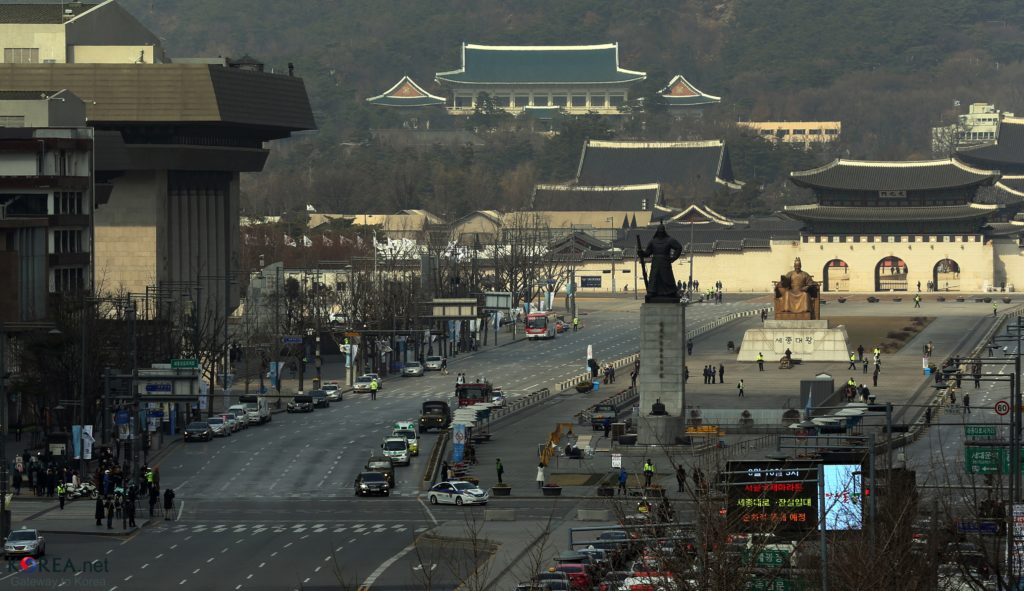The Peninsula
2021 in Review: South Korea’s Efforts to Navigate U.S.-China Competition

This is the third in a 10 part series looking at how the issues identified in KEI’s annual “10 Issues to Watch for on the Korean Peninsula” series developed in 2021. The original “10 Issues” piece can be found here.
As U.S.-China competition remained unabated in 2021, South Korea continued to find itself navigating difficult waters in East Asia. Under the Biden administration, Seoul and Washington managed to put their alliance relationship on a more solid footing. However, questions linger on how far Seoul is willing to cooperate with Washington on broader Indo-Pacific issues as the Moon government continues to seek positive relations with Beijing.
The joint U.S.-South Korea statement following President Moon Jae-in’s White House visit in May 2021 put to rest concerns that U.S.-South Korea relations were off-kilter. After shying away from the Indo-Pacific narrative, Seoul offered its strongest statement of support to date for an inclusive, free, and open Indo-Pacific region. The joint statement also made reference to the Taiwan Straits, a sensitive issue typically eschewed by the South Korean government in deference to China. On economic issues, the two governments also agreed to bolster supply chain resilience, particularly with semiconductors and batteries. A notable step in this direction was Samsung’s decision this year to build a $17 billion semiconductor factory in Texas.
At the same time, South Korea must contend with a China whose relative power will continue to rise. Seoul therefore prefers not to rupture relations with Beijing, even if it means holding back on U.S.-led regional initiatives and coalition-building. South Korea will pursue the strategy it believes will best suit its national interest. That has meant tempering its close security partnership with the U.S. on issues that fall outside the scope of the Korean Peninsula and Northeast Asia while sustaining its economic partnership with China.
In the long run, China will also play an important role in a future Korean peace regime. As such, several high-level meetings between Chinese and South Korean officials, including a meeting this month between a high-ranking Chinese Communist Party politburo member and South Korea’s national security advisor to discuss an end of Korean War declaration, and Seoul’s decision to break with Washington on the diplomatic Olympic boycott against Beijing, should not be surprising.
The next South Korean government must continue the difficult task of navigating U.S-China competition. A “balanced” approach between Beijing and Washington is expected to a greater or lesser degree depending on the winner of South Korea’s presidential election in March 2022. However, the adoption of a more neutral position in the Indo-Pacific region will not necessarily prevent China from undercutting Seoul’s regional interests in the future. To protect its own interests, Seoul must continue to cultivate partnerships with other U.S. allies, even as it works to preserve relations with China.
Andrew Yeo is the SK-Korea Foundation Chair at the Brookings Institution and Professor and Director of Asian Studies at The Catholic University of America. The views expressed here are the author’s alone.
Image from the Republic of Korea’s photostream on flickr Creative Commons.
